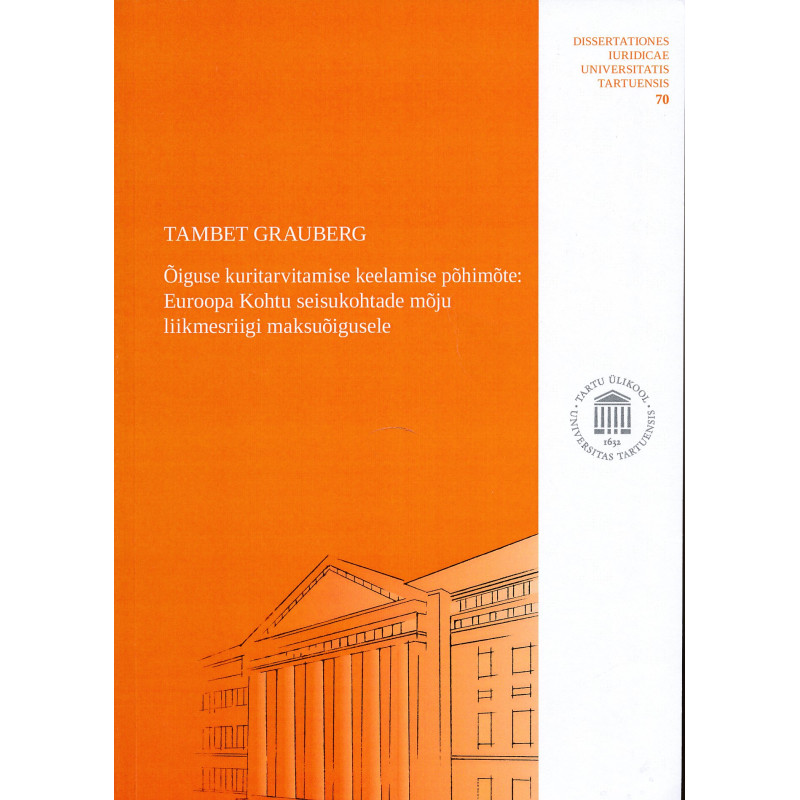



Tartu : Tartu Ülikooli Kirjastus, 2018
276, [1] p.
Dissertationes iuridicae Universitatis Tartuensis, 1406-6394 ; 70
ISBN: 9789949777655
Softcover in very good condition
The research question of this thesis is concerned with the possibilities for a Member State to prevent abuse of rights by applying a general principle in order to strike a balance between recognising the freedom of personal fulfilment and even taxation, i.e. to prevent the avoidance of tax liability. A taxable person is entitled to certain tax benefits and to exploit these advantages in planning their operations. This is permitted and accepted by the state. The principle of legal certainty requires that legislation must be foreseeable by those subject to it in order for them to be able to make the best choices in terms of taxation. The problem is linked to the question of where to draw the line between acceptable tax planning and tax avoidance if a person has knowingly and intentionally created conditions for reducing their tax burden. Legitimate expectations of the taxpayer correlate with other principles such as the principle of solvency, uniformity and equability the principle of tax law itself, which are important factors in tax law and affect the scope of tax liability. The author reached the conclusion that when applying the general anti-abuse rule, the state must take into account the requirements for the prevention of tax avoidance inferable from the principle of the prohibition of abuse of rights. Based on the principle of legality, tax measures that create obligations on persons must be underpinned by law or by the principle of interpretation established by case law. In both cases the application of the rule is restricted by other important principles, including the principles of proportionality and full effectiveness of EU law. According to the general principle of the prohibition of abuse of rights, the taxpayer cannot decide on the extent of their tax liability. However, the taxpayer can take into account taxable events within the structure of their economic operations, provided that this does not result in a tax advantage contrary to law.